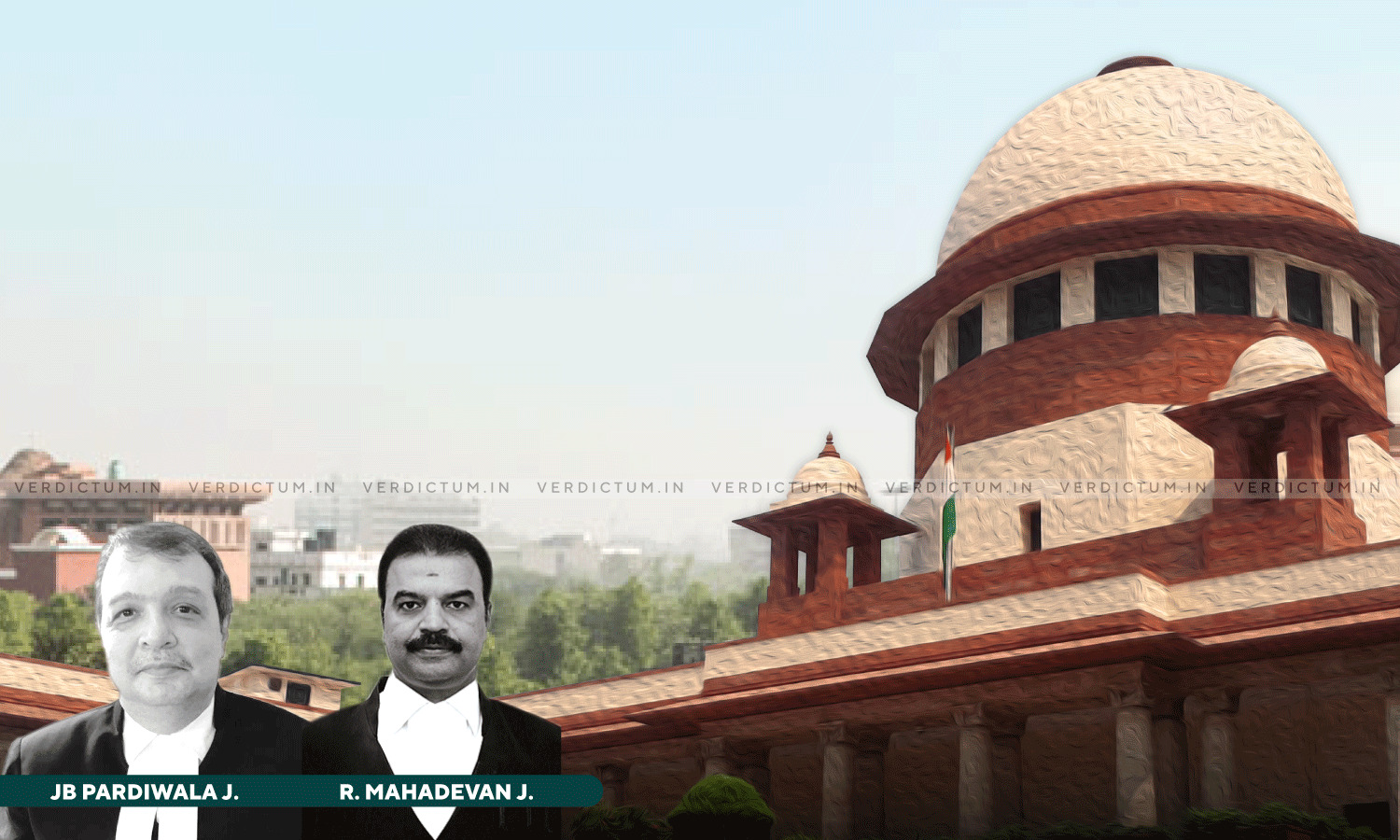Supreme Court To Appellate Courts

The Supreme Court has held that where an Appeal cannot be disposed of expeditiously, the Appellate Court must show special concern in the matter of suspending the sentence, so as to make the Appeal right, meaningful and effective.
The Court was considering an Appeal against an order of the High Court by which it declined to suspend the substantive order of sentence passed by the Trial Court.
The Bench of Justice JB Pardiwala and Justice R Mahadevan observed, “When the Appellate Court finds that due to practical reasons, such appeals cannot be disposed of expeditiously, the Appellate Court must show special concern in the matter of suspending the sentence so as to make the appeal right, meaningful and effective. At the same time, the appellate courts can impose similar conditions when appeal is granted.”
Facts of the Case
The Appellant was put to trial for the offence punishable under Sections 7 and 8 of the POCSO Act, Sections 354, 354(k)(h)(a), 323 and 504 respectively of the Indian Penal Code and Section 3(1)(10) of the Scheduled Castes and Scheduled Tribes (Prevention of Atrocities) Act, 1989.
He was sentenced to undergo one year rigorous imprisonment with fine of ₹3000/- for the offence punishable under Section 354 IPC for the offence under Sections 7 and 8 respectively of the POCSO and was further sentenced to undergo 4 years of RI with fine of ₹4,000/- and for the offence under the SC/AT Atrocities Act, he came to be sentenced to undergo 4 years of RI with fine of ₹5,000/-. The Trial Court ordered that all the sentences shall run concurrently.
Later, the High Court declined to suspend the substantive order of sentence in the Appeal filed.
Reasoning By Court
The Court at the outset referred to the Supreme Court’s ruling in “Bhagwan Rama Shinde Gosai and Others v. State of Gujarat”, (1999) wherein it was observed that when a convicted person is sentenced to a fixed period of sentence and when he files an appeal under any statutory right, suspension of sentence should be considered by the Appellate Court liberally unless there are exceptional circumstances.
Stressing that if for any reason the sentence of a limited duration cannot be suspended, every endeavour should be made to dispose of the Appeal on merits, more so when a motion for expeditious hearing of the Appeal is made in such cases, the Court observed, “This Court said in so many words that otherwise the very valuable right of the appellant would be an exercise in futility by afflux of time.”
It noted that it is unfortunate that the High Court while passing the impugned order failed to take into consideration the well-settled principles of law governing the plea of suspension of sentence on fixed term.
“What the High Court did was to reiterate the entire case of the prosecution and the oral evidence which has come on record…..That is not the correct approach……The High Court should have been mindful of the fact that the appeal is of the year 2024. Appeal of 2024 is not likely to be taken up in near future. Ultimately, if 4 years are to elapse in]jail the same would render the appeal infructuous and that would be travesty of justice”, the Court observed.
It thus set aside the impugned order and remanded the matter to the High Court for fresh consideration of the plea of the Appellant.
The Appeal was accordingly disposed of.
Cause Title: Aasif @Pasha vs. The State of U.P. & Ors.

